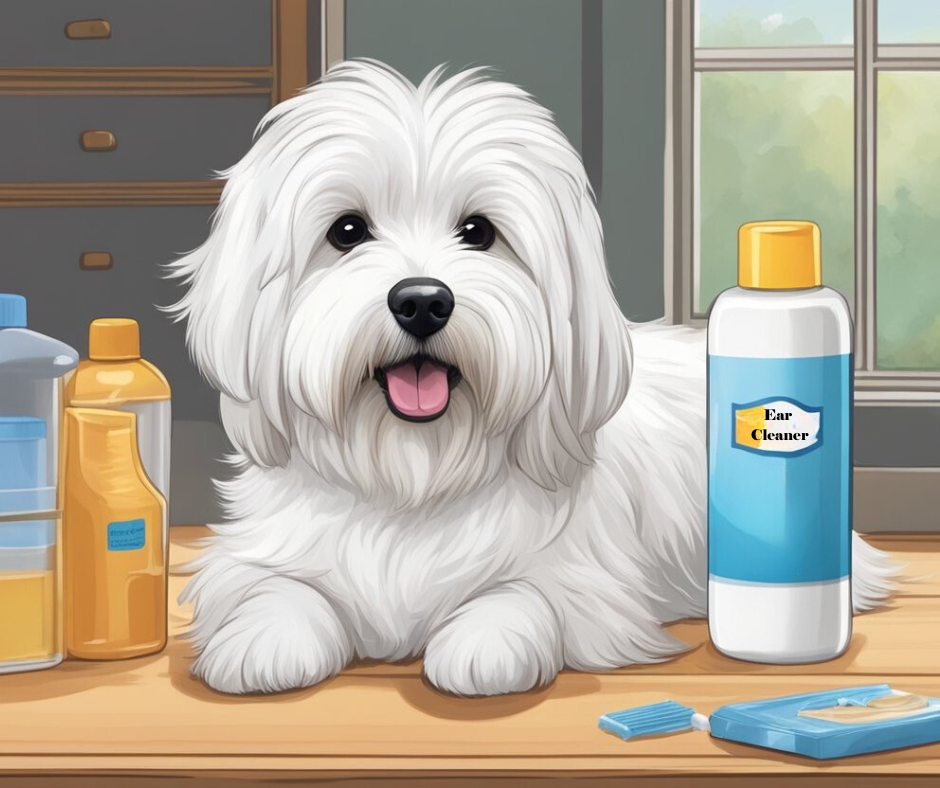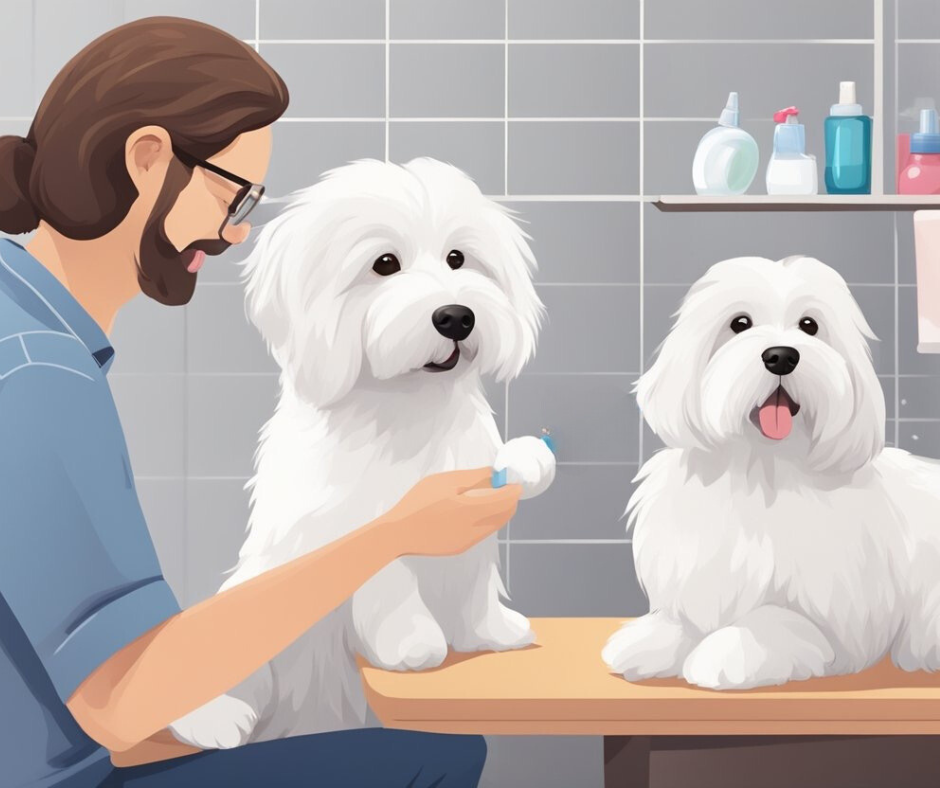Coton de Tulear Dog Ear Problems
How to prevent and treat these common ear issues -and save hundreds of dollars

Dog ear problems are one of the top reasons for trips to the vet.
Countless trips to the vet for ear troubles have become a familiar part of my journey with my Cotons, Luc and Lucy. Luc, in particular, wrestled with chronic allergies throughout his life, and it seemed like his ears were always the first to raise the alarm.
Red, smelly, yucky ears caused him to scratch and rub his ears on the floor. When we finally got his allergies under control, his ears were no longer inflamed and irritated.
Don’t get me wrong; this was not an overnight fix – I spent years trying to find help for Luc’s allergies and ultimately got them under control with an anti-inflammatory homemade diet (created by a veterinary nutritionist) and sometimes medication during allergy season.
My newer Coton, Lucy, also has chronic ear problems, which we suspect stem from hereditary health challenges. In addition to a high-quality diet, she’s on vet-prescribed ear cleaners and ointments, a routine that she’ll probably maintain for life. But I’m grateful we finally discovered a regimen that offers her some much-needed comfort.
It’s so frustrating! Not only are trips to the vet time-consuming and expensive, but it’s awful watching your dog struggle with the pain and discomfort.

How can you prevent dog ear problems?
Ear problems can be a common issue for many dog breeds, but the Coton de Tulear’s adorable long floppy ears are not just a hallmark of their cute appearance but also an area that often requires regular attention.
As with many dogs with long hair and floppy ears, Cotons are prone to accumulating dirt and moisture in their ear canals, creating an environment conducive to bacterial and yeast growth. By learning how to clean your dog's ears carefully and recognizing the early signs of ear issues, you can nip potential problems in the bud.
Being proactive with prevention strategies can save hundreds of dollars as well as pain and discomfort for your dog.
Effective Prevention Strategies:
- Pets need their ears cleaned just like people do, so you should make that part of their regular grooming routine (whether you do it yourself or have a professional do it).
- Clean the ears with a safe dog ear cleaner made especially for dogs. How often you clean his ears will depend on many factors. If your dog has long ears, a history of problems, is prone to allergies and scratching, or swims a lot, you should check his ears weekly – or in some cases, daily. Otherwise, once a month should be sufficient.
- Make sure your dog’s ears are dry, especially after bathing or swimming. I’ve learned the hard way to always dry my dog’s ears after grooming because sometimes the groomer doesn’t dry them thoroughly.
- Check their ears every day for redness, discharges, and odors so you can catch problems early before the ears become infected. A 3-second look in each ear is an easy way to check for problems.
- Keep any hair growing inside the ears trimmed.
- Don’t use Q-tips. Use cotton to clean the ears.
- Provide a high-quality diet. According to the book, The Forever Dog, studies have shown that high-quality diets rich in omega-3s and lower in unhealthy fats have far fewer recurring skin and ear issues from immune system imbalances than those who ate highly processed kibble.
- Put your dog on an elimination diet to determine if food allergies are causing ear problems. Common food allergens include corn, soy, eggs, chicken, beef, wheat, and dairy. Test one food at a time so you can find and then eliminate that food. Lucy is sensitive to chicken and eggs. I am happy to know this so I can exclude them from her diet, so she doesn’t get skin and ear issues.
Signs of Ear Infections
Ear infections are one of the most common health issues in dogs and can cause significant discomfort. Be vigilant for symptoms such as:
- Odor: Unusual or foul smell emanating from the ears.
- Discharge: A noticeable increase in wax or a pus-like discharge.
- Redness or Swelling: Redness or swelling inside the ear indicates inflammation.
- Scratching or Rubbing: Excessive scratching or rubbing of the ears or head.
- Shaking Head: Frequent head shaking is a typical sign of irritation.
- Loss of Balance or Disorientation: If the infection is severe, it may affect your dog's equilibrium.
Causes of Ear Issues in Dogs
Several factors contribute to ear problems in the Coton de Tulear, such as:
- Moisture: A prime environment for bacterial or yeast growth, often due to water trapped after bathing or swimming.
- Allergens: Environmental allergies and food allergies can lead to inflamed ears.
- Parasites: Ear mites are a common cause, characterized by intense itching and black or brown waxy discharge.
- Anatomy: The breed's floppy ears can reduce air circulation, making their ears more prone to issues.
By understanding these signs and causes, you can take prompt action to prevent discomfort, pain, and hefty vet bills.
When to See a Vet
- Persistent Symptoms: If symptoms persist despite home care, or if you notice severe redness, swelling, or discharge, see a vet promptly.
- Severe Cases: For severe or recurrent problems, a vet can identify the underlying cause and provide the best treatment plan.

Treatment Plans
- Medication: Your vet will likely prescribe ear washes, ear drops or ointments to combat infection or inflammation. This can be a one-time or short-term solution or an ongoing treatment if there is a chronic condition.
- Maintenance: Follow your vet's treatment plan rigorously, applying medication as directed and returning for follow-up appointments.
- Underlying Cause: Addressing the underlying cause is crucial. Your vet may suggest allergy testing, dietary changes, or other long-term strategies.
For routine ear care, click here to find out what our visitors suggest for their Cotons’ ear care.
Home | About Me | Contact Me | Privacy Policy |Disclosure
Copyright© 2008- All Rights Reserved








